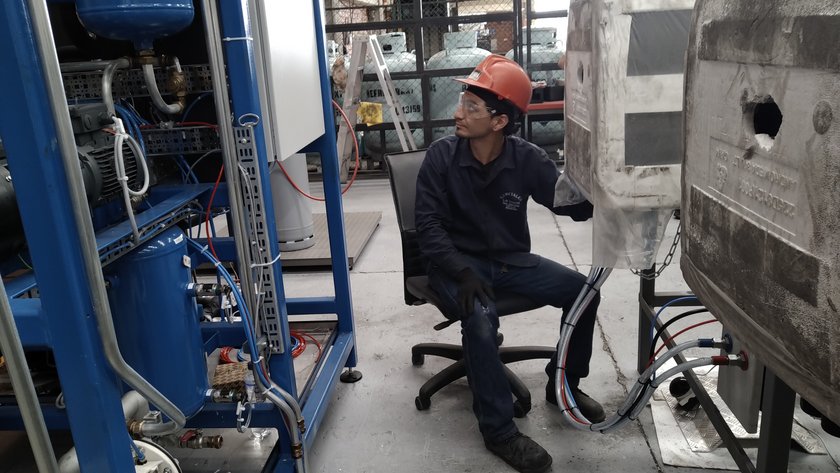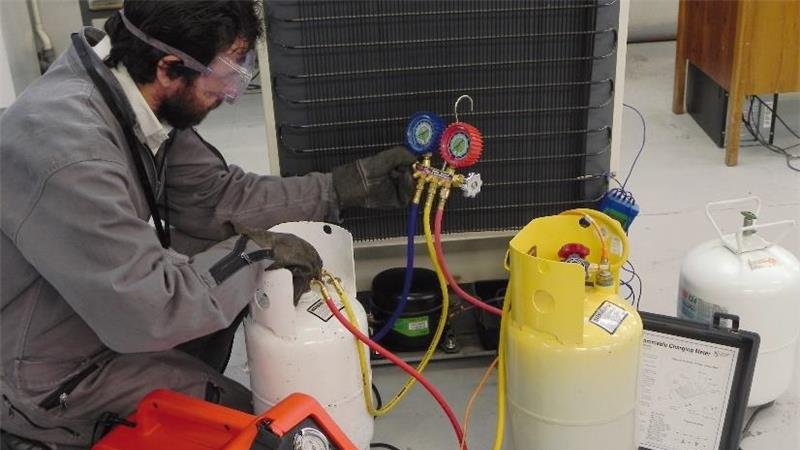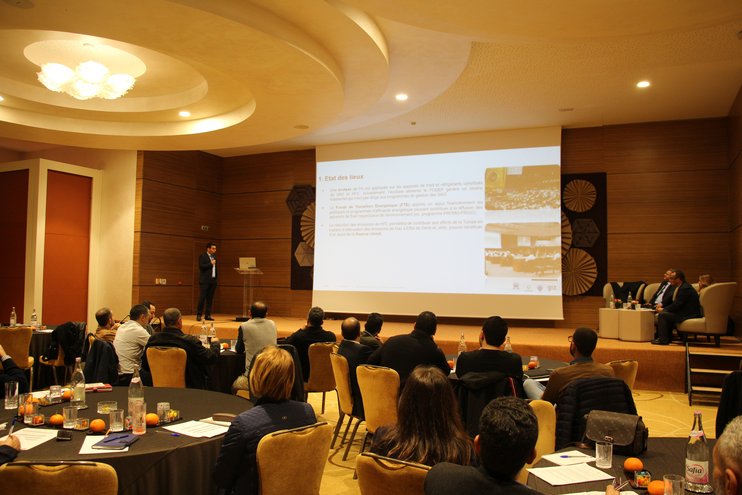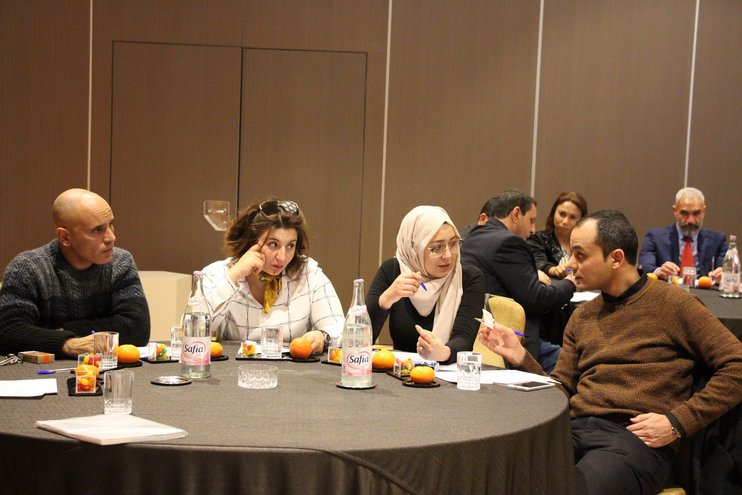Throughout the past years, the project "Management and destruction of existing ozone depleting substances in ODS banks" (ODS Banks) has successfully addressed the often overlooked topic of ODS and HFC banks.
While the international community has agreed to regulate the production and consumption of ODS by the Montreal Protocol and to phase-down HFCs with its Kigali Amendment, no agreements have been made regarding the destruction of the ODS and HFCs already produced. The topic of “ODS and HFC banks” remains largely unaddressed by international agreements despite its huge climate impact. According to project estimates, 1.5 Gt CO2eq are emitted per year which is equal to annual emissions from 441 coal power plants. The global IKI-project ODS Banks provides strategies and good practice approaches for a sustainable management of ODS banks and assists the partner countries to develop their national sustainable management systems for ODS contained in cooling equipment.
Policy Advice
This video is being blocked because of your cookie settings.
Despite of all the challenges this unique year brought, the ODS Banks project successfully implemented activities thanks to the excellent collaboration with partner countries. In this brief article we would like to show some of the highlights and summarise the results achieved.
Policy advisory: Development of ODS banks inventories and status-quo analysis as a basis for future actions
Inventories identifying the amount of ODS and HFC banks in specific sectors provide a sound base and starting point for the definition of the management and destruction actions for these banks, aimed at reducing emissions from the gases contained.
Beginning of 2020, the study Banks and Emissions of CFC-11 and CFC-12 was published. It highlights the importance of existing CFC banks and emissions despite the achieved CFC phase-out and the importance of quantifying and recovering CFCs.
During the past three years, ODS Banks inventories and gap analyses were elaborated for the five partner countries Colombia, Dominican Republic, Ghana, Iran and Tunisia. In 2020, three sub-sector inventories showing ODS and HFC banks in the fire extinguishing, polyurethane foams and supermarkets commercial refrigeration sectors in Colombia were developed.
Gallery - Stakeholder Workshop Tunisia
Capacity Building
Using the inventories and gap analyses as starting points, national ODS Banks roadmaps have been developed. These provide recommendations on short- and long-term actions to be implemented to address ODS Banks and achieve emission reductions. These recommendations will be presented in strategic workshops where responsibilities and measures needed to implement the actions will be discussed with stakeholders. In Tunisia the stakeholder workshop took place in February 2020 and workshops in Colombia, Ghana and Iran are planned for 2021. "I am very much looking forward to these workshops. The ODS and HFC banks topic touches upon many aspects since one has to consider the entire product lifetime of equipment containing those substances”, stresses Miriam Frisch, advisor for the ODS Banks project. “It’s crucial to involve all stakeholders in the preparation and implementation of ODS and HFC banks strategies. In this way, significant mitigation of ODS and HFC banks emissions can be achieved."
Capacity Building: Well-trained actors are key to address the topic
Capacity building measures are crucial for the successful implementation of ODS and HFC banks management and destruction activities. When implementing for example a collection scheme, service technicians, personnel dealing with equipment containing ODS when it becomes waste, ministerial departments or third parties who are responsible for monitoring the flow of e-waste should be well-trained.
Destruction Quote
"It is paramount to find local solutions for the sustainable end-of-life management of ODS and HFCs."
Technology Transfer
Throughout the project implementation, trainings on the manual dismantling of refrigerators and ACs, on key elements of ODS and HFC banks inventories, on setting up an EPR-scheme, etc. were conducted. Unfortunately, in 2020 we could not implement any practical training but are happy we could work on different aspects virtually.
Technology transfer
ODS and HFC destruction technologies are an important aspect when addressing the banks topic. But only if a critical mass of substances is collected, those technologies are economically viable. This in turn requires a regulatory framework, a sustainable financing mechanism as well as a collection and recycling infrastructure.
In 2020, a paper on thermal destruction processes was published. "The destruction of ODS and HFCs are an expensive challenge, especially for developing countries, since there are no international regulations on collection and final disposal of ODS and HFC and therefore there are no specific international funds for this," explains Verena Maas, project manager at the 'ODS banks' project. "It is therefore paramount to find local solutions for the sustainable end-of-life management of ODS and HFCs." In the paper, a special focus was turned upon the applicability of technologies in the context of developing countries, highlighting their potential investment and operational costs as well as technical requirements."
Financing Options
 Image: RED VERDE
Image: RED VERDEThe two degassing units, installed at the end of 2019, started operating in 2020. Using these units, waste management companies can recover the refrigerant gas and oil contained in each refrigerator in a much more efficient and safe disassembly processes than before.
Financing ODS and HFC banks management and destruction activities through market-based mechanisms
ODS and HFC bank management and destruction activities need to be based on sustainable financing mechanisms. GIZ Proklima has been analysing the possibilities to create synergies between the Kigali Amendment and the market-based mechanisms of the Paris Agreement. "In 2021, we will be deepening the analysis to be supportive of those countries committed in increasing their ambition in their contributions through innovative projects", adds Mónica Silva, project manager at GIZ Proklima.
Thank you!
2020 brought many challenges but also opportunities that allowed us to implement many activities and contribute to reductions of emissions from ODS and HFC banks. The ODS Banks team would like to thank the partner countries for the continuous successful cooperation. We look forward to the implementation of further activities in 2021 and wish you and your families a peaceful and healthy festive period!



